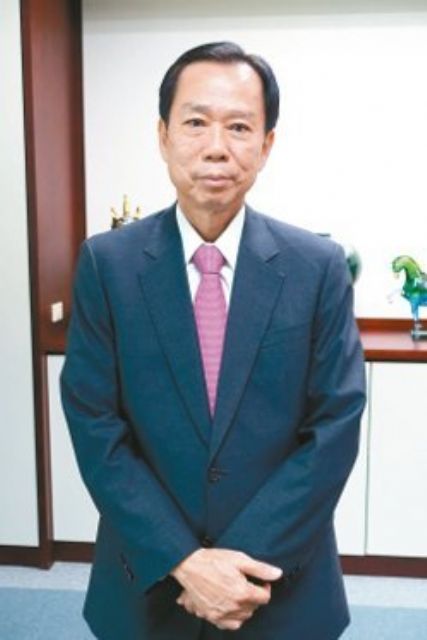Battery-pack Giant Simplo to Focus on EV Biz Starting 2016
Chairman Sun believes EV industry in Taiwan will have great growth potential
2015/11/04 | By Quincy Liang
Fu-hsiang Sun, Chairman and CEO of Simplo, recently pointed out the promising potential of electric vehicle (EV) for Taiwan's industrial development, a field Simplo will focus on starting 2016. If the Taiwanese government has intention to support more vigorous development of the EV industry on the island, Sun added, Simplo has the will to act as a leader or integrator.
Regarding the future development of Taiwan's technology industry, Sun said that some emerging markets, especially India and Indonesia, should be targeted by Taiwanese companies, but via collective effort rather than individually, so as to achieve synergy and team competitiveness in those new markets.
Currently the chairman and CEO pointed out the lack of new killer application in the information technology (IT) industry, nor significant product changes; while Simplo has been trying to explore new niche segments such as smart clothing and smart watch.
Such efforts invested in diversification, according to Sun, are aimed at turning Simplo from "King of IT Energy-Storage" into future "King of Key IT Parts" to achieve more robust momentum behind business development.
Winning Innovation
As for the future development of the electronic and lithium-ion battery industries, Sun said that lithium-ion battery has very broad applications, ranging from notebook PCs, smartphones, EVs, wearable devices to almost all kinds of electronic products. That means, he added, market demand will continue to exist and not deteriorate easily in the short term. However, makers of lithium-ion batteries and packs have to constantly innovate thinner and higher energy-efficient products so as not to be weeded out by the market.
Sun said that Simplo carries out at least 700 new development projects every year, to make it the only player in the business with such high flexibility and ambition, hence Simplo's in-house labs for self-testing all products made. Such integrated production and testing mode, the chairman and CEO said, helps Simplo win more orders from global customers.
For the lithium-ion battery industry, the most serious problem now, Sun said, is also the lack of new killer applications like the demonstration of Apple's iPad several years ago. But wearable devices are triggering a new market demand wave, he continued, the relatively-low unit prices mean low margins for parts suppliers. Compounding the issue is that many new applications, like wearable devices, are not necessities in daily life. The whole industry has been eagerly trying to find new applications, Sun said.
New Hope: EV
“I think the next star application for the technology industry would be EV, a sector in which Taiwan can potentially create sizable production value in the future. It's a pity that currently integration of the EV supply chain in Taiwan faces some bottlenecks, but Simplo will try hard to tie up with both up- and downstream partners on the island to jointly develop this futuristic business,” said Sun.
The Taiwanese government chose to focus on the development of semiconductor and thin film transistor-liquid crystal display (TFT-LCD) panel industries several years ago, Sun noted, which however have failed to meet original expectations due mainly to fierce competition from global counterparts, especially from China. The government also turned its eye to the biotechnology and bio-pharmaceutical lines, which however need at least 20 years to see fruitful rewards due to their industrial characteristics. Sun said that the development of the EV industry in Taiwan requires not 20 years but only two, and he is confident in the potential of the business to create very high production value for the island.
There is not sufficient room for any kind of disruption in the local industry now, Sun pointed out, otherwise individual companies will be weeded out one by one. To prevent such upheaval from happening in the local EV industry, different units of Simplo have mapped out plans to integrate available resources for effective development of the local EV industry. Simplo's goal, according to Sun, is to make Taiwan an export citadel of assembled EVs and key parts to the whole world.
IoT
Internet of Things (IoT) is undoubtedly a major focus of numerous players, and the segment is moving rapidly toward, Sun said. Currently, Simplo is aggressively developing new battery packs for new applications such as wearable devices and smart watches, because all terminal devices in the new age of IoT the battery is still the critical part.
Simplo is also optimistic about the future development of battery packs for smart clothing. Sun said that the overriding challenge for battery packs for such application include developing waterproof technologies as well as techniques to make packs even thinner and lightweight. However, the chairman and CEO said, clothing is a necessity in daily life, so there remains opportunity to create growth momentum for Simplo's future business.




